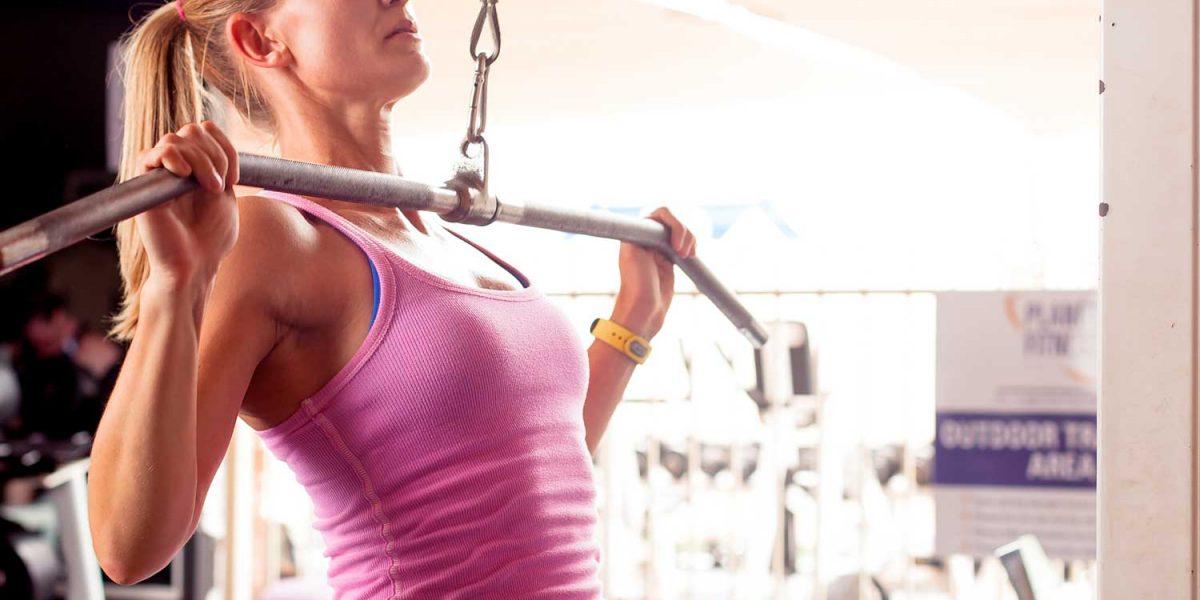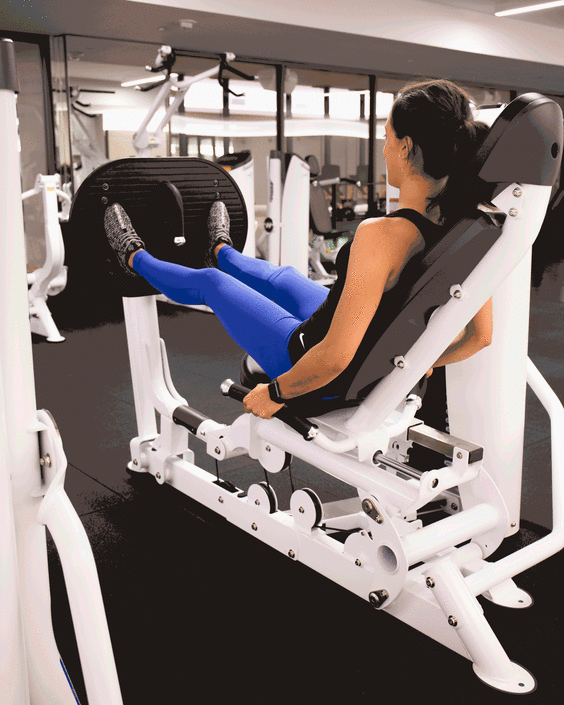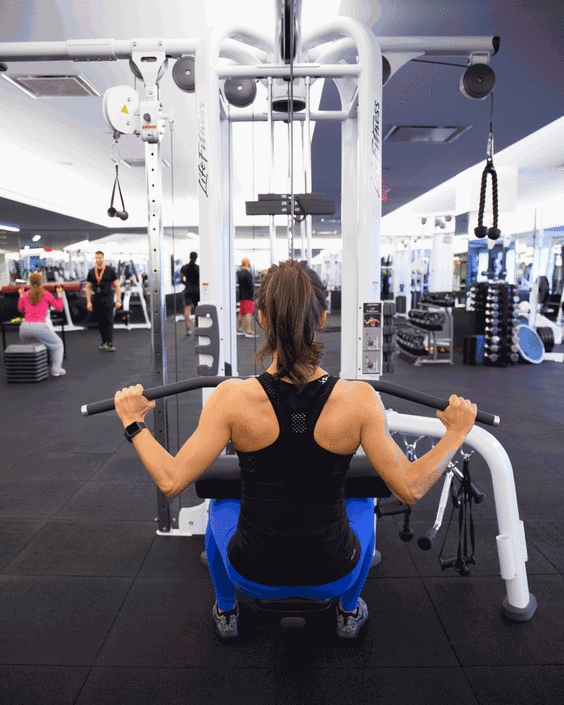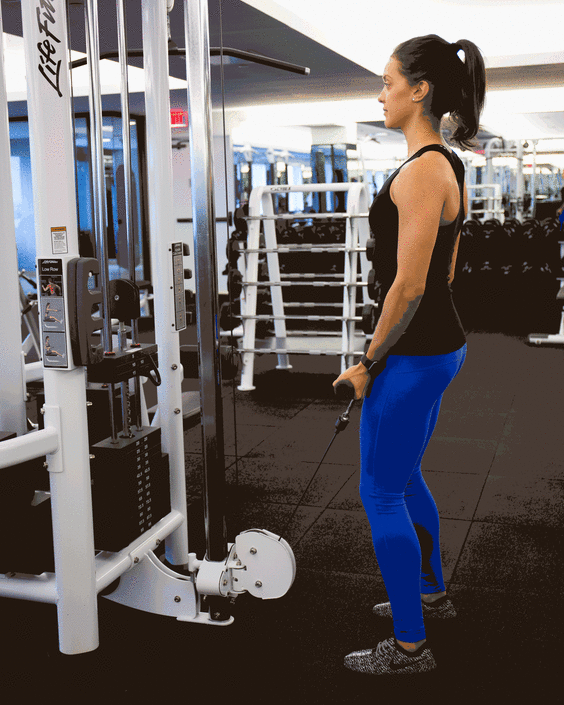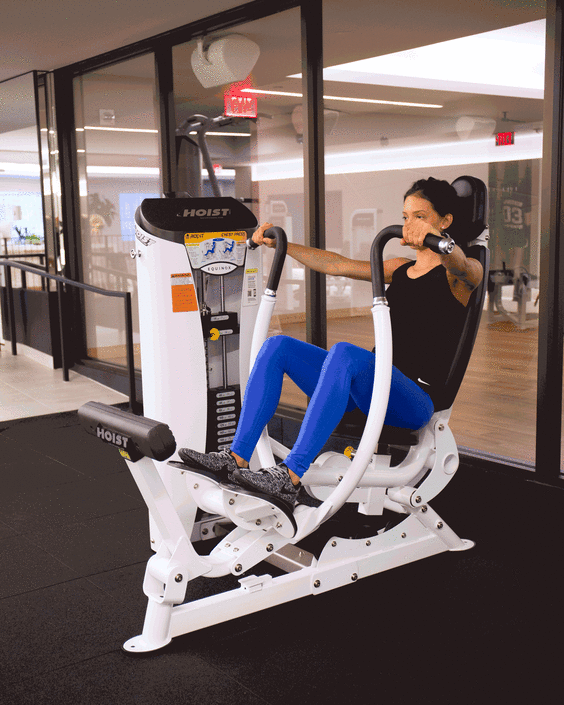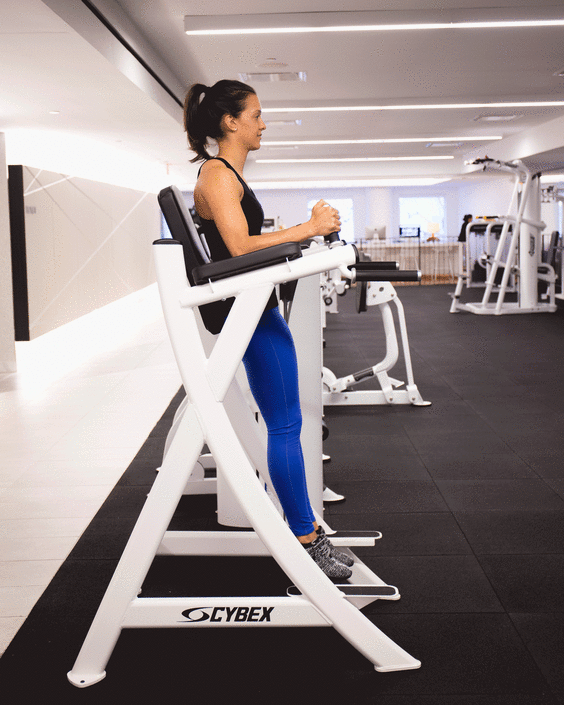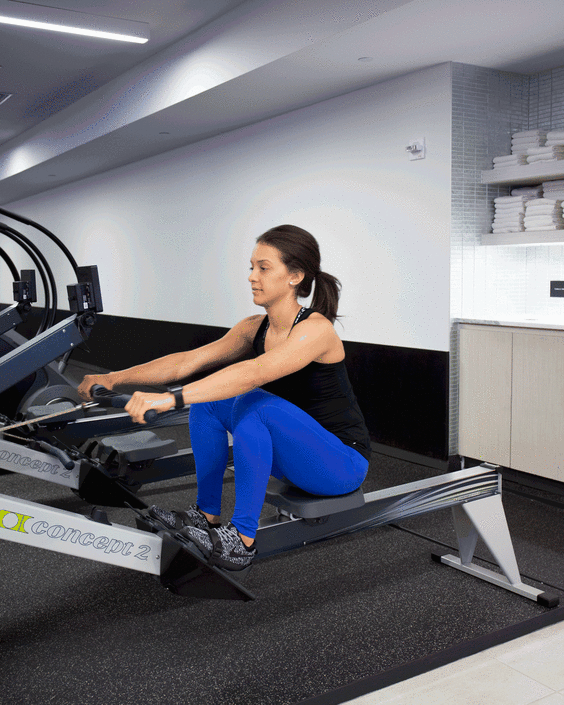“It’s true that if you’re using free weights you have to recruit so many stabilizing muscles,” says Shannon Fable, “But when you’re getting started, using selectorized equipment (the machines with weighted plates) and just learning the movement pattern is OK.”
Another bonus: “If you haven’t got full strength, or balance, or full range of motion, machines are much safer,” says Stuart Munro, certified personal trainer for the New York Health and Racquet Club.
For those who have been on a gym hiatus or are gaining back strength post-injury, weight machines are an easy way to get back in the game—without the risk of dropping anything heavy on your foot, Munro says. And, as you’ve likely noticed, weight machines remove the guesswork since they usually have helpful how-to cards right on the machine.
With that in mind, here are the top machines the trainers we spoke with suggested. Each one will help you build strength and train your body to use the right muscles, so you can be on the leg press one day and do weighted squats with perfect form the next.

